-
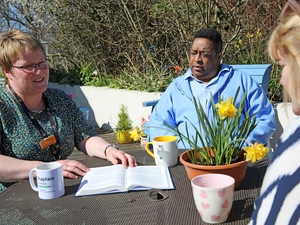
21 October 2025
Chaplains are integral to hospice care
Chaplains are integral to the care that hospices give to their patients, families and staff. ... read more
-
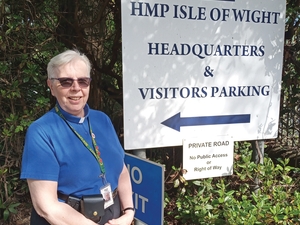
23 September 2025
Prison chaplaincy can be a godsend
The chaplains based at HM Prison Isle of Wight offer regular Sunday services, pastoral care, ... read more
-
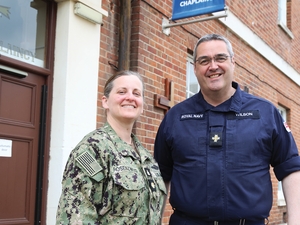
26 August 2025
Naval chaplaincy is always available
The chaplaincy team on HM Naval Base Portsmouth is always available for naval personnel, civil ... read more
Chaplains are integral to hospice care
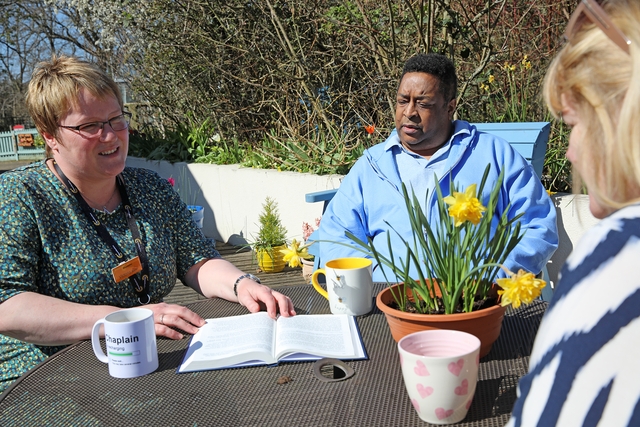
AT the Isle of Wight’s only hospice, spiritual issues aren’t an optional extra – they are woven into the fabric of the place.
It means that the chaplain, the Rev Vickie Morgan, isn’t the only one helping patients with their faith. Commitment to holistic care means that all staff from Mountbatten Isle of Wight can offer spiritual support to the dying.
Vickie has held the hands of many as they have died, offering prayers, support and care in their final few moments. She also supports patients and their families long before they get to that point.
The role of Mountbatten Isle of Wight, the island’s community and hospice end-of-life and palliative care provider, is to promote and provide good care and support for people living with, affected by or curious about death, dying and bereavement.
And Vickie is just one of many chaplains that operate across our diocese. They can be found supporting people of all faiths and none in our hospitals, colleges, university and workplaces, often as part of an ecumenical team.
Mountbatten was inspired by pioneering Christian medic Dame Cicely Saunders – the founder of the hospice movement – and created in 1982 just outside Newport. It delivers expert specialist palliative care to more than 2,000 people, in their own homes and in the hospice.
The hospice itself has 16 in-patient beds, as well as a shop, café, chapel, art room, gym and its award-winning garden. Vickie has been chaplain there since the beginning of 2024. She offers spiritual care as well as training for other staff in how to do so.
“People think that patients come to hospices to die,” she said. “In fact, we meet them early, many years beforehand. We offer a day service or therapy or spiritual care, and have much more involvement than just the end of their life. Mountbatten care is about living, dying and remembering, and focuses on the patient’s wishes. For some that is to die at home.
“The holistic approach is grounded in Dame Cicely Saunders’ understanding that the spiritual cannot be separated from the physical or mental. It’s all a part of what it is to be human, and each can impact the other in dying. I’ve worked for the NHS before, but never anywhere else where spiritual care is so much part of everyday life.
“I can teach staff and help to build up their confidence in spiritual care of their patients. And of course, if a patient is from a different faith or from no faith, I can advise on what will be important to that patient at the end of their life.
“We hold regular memorial services, often six months after someone has died, in our chapel. Loved ones will come for a service with music, readings and candles. We may even do bedside baptisms or confirmations, but I’m yet to do a wedding here.
“Chaplaincy is something that is rooted in my own sense of vocation. Jesus visited the sick, and it’s about being present and alongside people, building relationships and offering spiritual and emotional support. That’s not just with the patient, it’s also with their families and friends, staff and volunteers. I take a lot of the funerals and work closely with the bereavement team.
“I do believe that having ‘a good death’ helps the bereavement process. If the patient was spiritually at peace, comfortable and well cared for, that makes a difference to their families.
“I also believe that the hospice has helped people on the island to talk about death and dying in a different way. Using the correct language is important and we shouldn’t be afraid to say someone is dying or has died rather than ‘passing away’.”
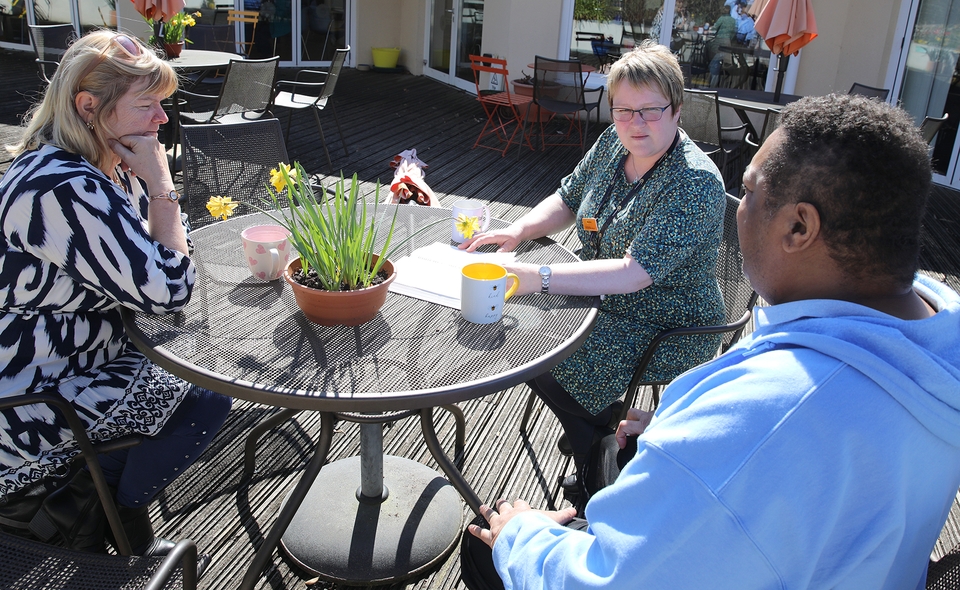
Patient Dave Patterson said: “Vickie has been great. She’s seen us in the hospice and at home, and we’ve had times of prayer.”
His wife Jan said: “She has provided spiritual and practical support, helping to plan Dave’s funeral, and providing me with activities to do within the hospice too. It’s good to have some downtime when you’re a full-time carer.”
Less than a third of the hospice’s funding comes from the NHS – the rest is raised through fundraising by committed supporters, staff and volunteers. Mountbatten ensures that all funds raised on the island remain with its hospice. Details are on www.mountbatten.org.uk